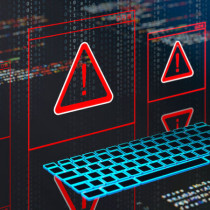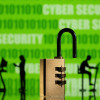How QR codes hide privacy, security risks
QR codes, those little black-and-white puzzle-like square matrixes that increasingly populate ads and promotional posters, are meant to provide smartphone users with product details. But trusting consumers who scan these squares and comply with permission requests could get more than they bargained for in the way of security and privacy problems.
There's no doubt that QR code use (the letters stand for "quick response") is on the upswing. Consumer adoption of two-dimensional bar-code-scanning applications among smartphone owners has jumped to 15 percent, versus 5 percent a year ago, according to Forrester Research, with Android models and iPhones being the most common smartphones used.
But experts say all this swiping could cause some security, and perhaps privacy, issues for unsuspecting users. The QR code itself can link to malicious text messages or malicious websites, said Tim Armstrong, a malware researcher at the international anti-virus firm Kaspersky Lab. "You can scan a barcode for a prompt to download an application, but you don't know the source of the application," Armstrong said.









































































